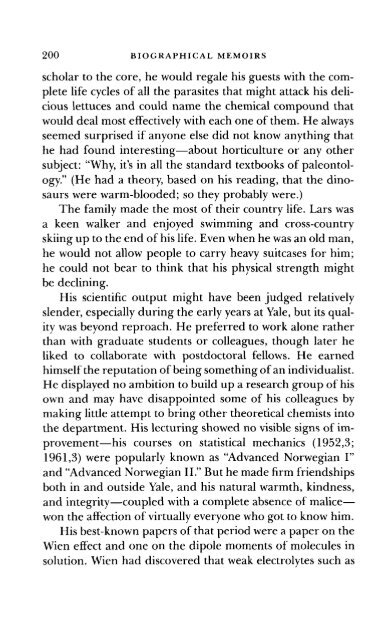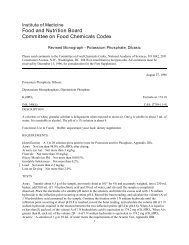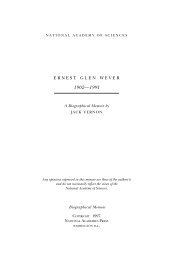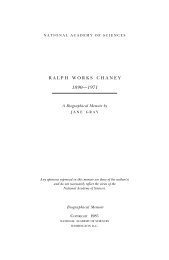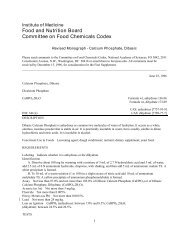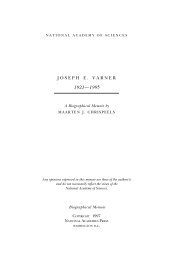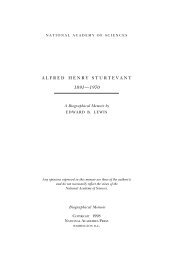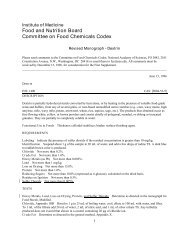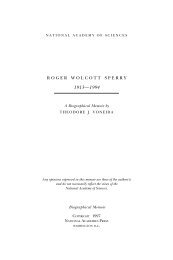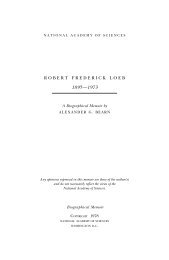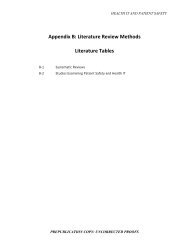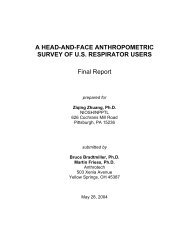LARS ONSAGER - The National Academies Press
LARS ONSAGER - The National Academies Press
LARS ONSAGER - The National Academies Press
You also want an ePaper? Increase the reach of your titles
YUMPU automatically turns print PDFs into web optimized ePapers that Google loves.
200 BIOGRAPHICAL MEMOIRS<br />
scholar to the core, he would regale his guests with the complete<br />
life cycles of all the parasites that might attack his delicious<br />
lettuces and could name the chemical compound that<br />
would deal most effectively with each one of them. He always<br />
seemed surprised if anyone else did not know anything that<br />
he had found interesting—about horticulture or any other<br />
subject: "Why, it's in all the standard textbooks of paleontology."<br />
(He had a theory, based on his reading, that the dinosaurs<br />
were warm-blooded; so they probably were.)<br />
<strong>The</strong> family made the most of their country life. Lars was<br />
a keen walker and enjoyed swimming and cross-country<br />
skiing up to the end of his life. Even when he was an old man,<br />
he would not allow people to carry heavy suitcases for him;<br />
he could not bear to think that his physical strength might<br />
be declining.<br />
His scientific output might have been judged relatively<br />
slender, especially during the early years at Yale, but its quality<br />
was beyond reproach. He preferred to work alone rather<br />
than with graduate students or colleagues, though later he<br />
liked to collaborate with postdoctoral fellows. He earned<br />
himself the reputation of being something of an individualist.<br />
He displayed no ambition to build up a research group of his<br />
own and may have disappointed some of his colleagues by<br />
making little attempt to bring other theoretical chemists into<br />
the department. His lecturing showed no visible signs of improvement—his<br />
courses on statistical mechanics (1952,3;<br />
1961,3) were popularly known as "Advanced Norwegian I"<br />
and "Advanced Norwegian II." But he made firm friendships<br />
both in and outside Yale, and his natural warmth, kindness,<br />
and integrity—coupled with a complete absence of malice—<br />
won the affection of virtually everyone who got to know him.<br />
His best-known papers of that period were a paper on the<br />
Wien effect and one on the dipole moments of molecules in<br />
solution. Wien had discovered that weak electrolytes such as


